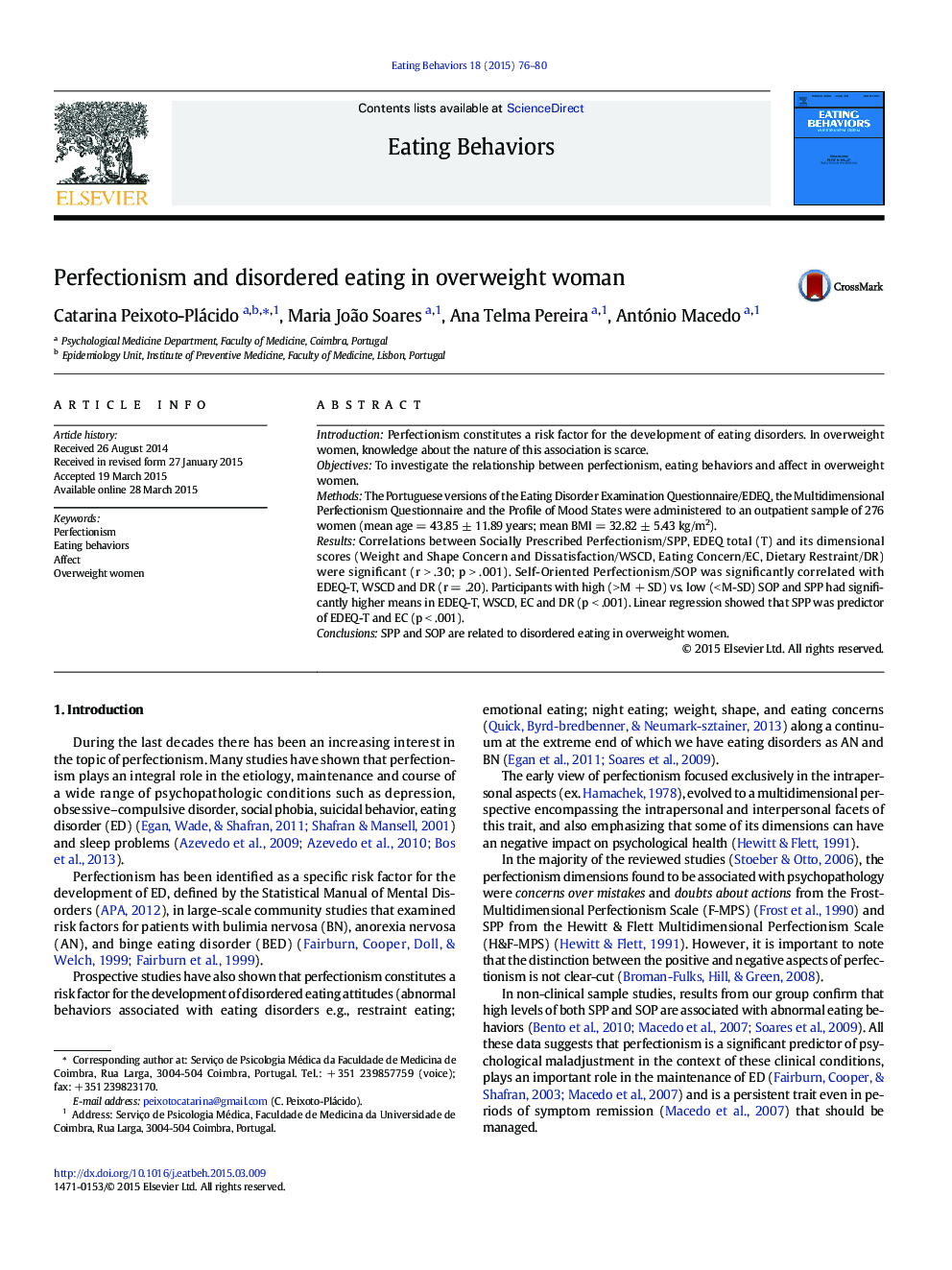| Article ID | Journal | Published Year | Pages | File Type |
|---|---|---|---|---|
| 906392 | Eating Behaviors | 2015 | 5 Pages |
•Perfectionism is related to eating behaviors also in overweight women.•Social Prescribed Perfectionism is a predictor of disordered eating.•Self-Oriented Perfectionism is a predictor of Weight and Shape Concern and Dissatisfaction.
IntroductionPerfectionism constitutes a risk factor for the development of eating disorders. In overweight women, knowledge about the nature of this association is scarce.ObjectivesTo investigate the relationship between perfectionism, eating behaviors and affect in overweight women.MethodsThe Portuguese versions of the Eating Disorder Examination Questionnaire/EDEQ, the Multidimensional Perfectionism Questionnaire and the Profile of Mood States were administered to an outpatient sample of 276 women (mean age = 43.85 ± 11.89 years; mean BMI = 32.82 ± 5.43 kg/m2).ResultsCorrelations between Socially Prescribed Perfectionism/SPP, EDEQ total (T) and its dimensional scores (Weight and Shape Concern and Dissatisfaction/WSCD, Eating Concern/EC, Dietary Restraint/DR) were significant (r > .30; p > .001). Self-Oriented Perfectionism/SOP was significantly correlated with EDEQ-T, WSCD and DR (r = .20). Participants with high (> M + SD) vs. low (< M-SD) SOP and SPP had significantly higher means in EDEQ-T, WSCD, EC and DR (p < .001). Linear regression showed that SPP was predictor of EDEQ-T and EC (p < .001).ConclusionsSPP and SOP are related to disordered eating in overweight women.
